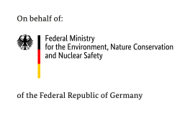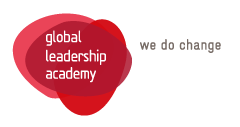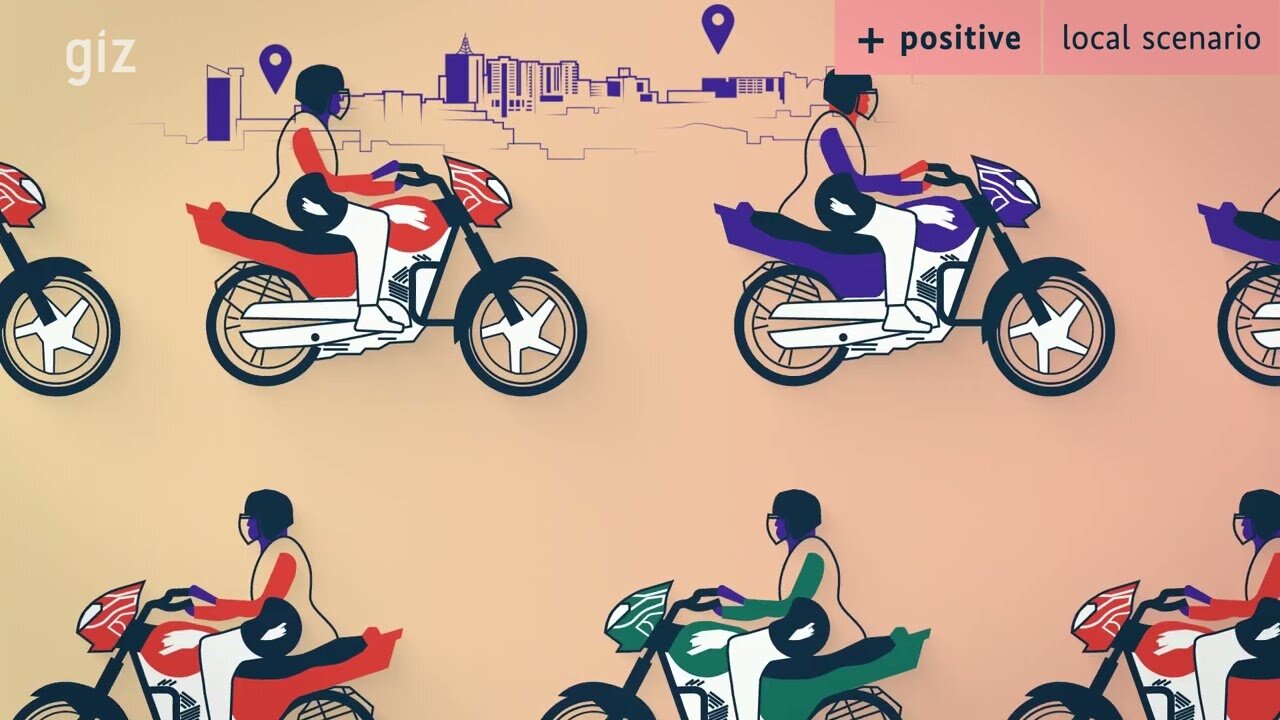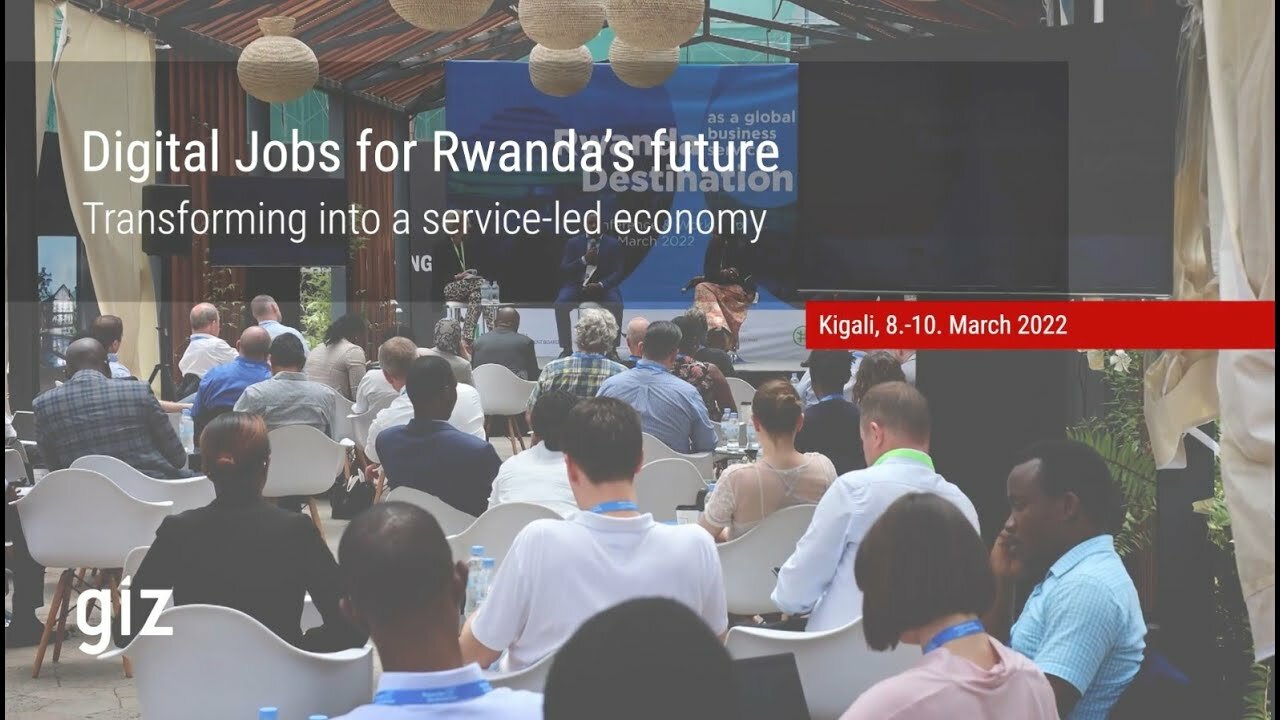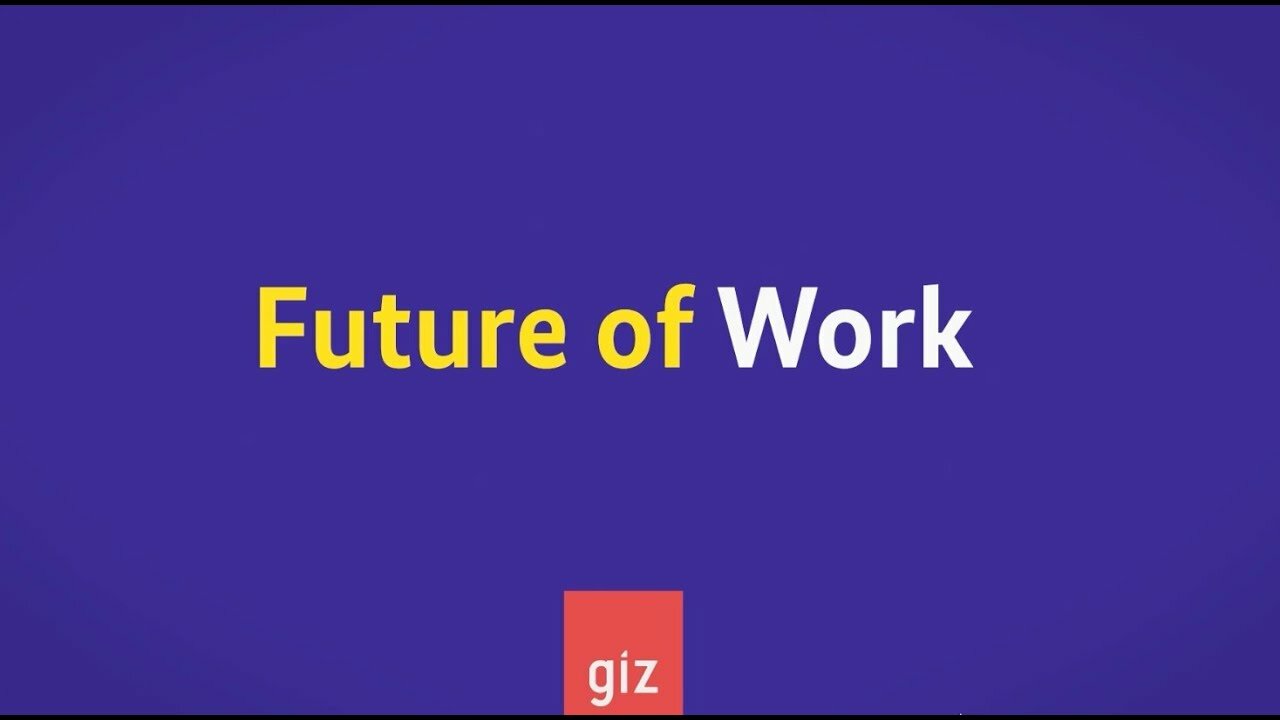Shaping a Digital Future of Work
GIZ Global Project & Fund: Policy Coherence for Sustainable Development
Alongside globalization and climate change, the rise of digital technologies is transforming the global economy. Since the 1990s, more computing power, bigger data and faster internet connections are restructuring economic activity globally and changing the world of work. At the same time, productive employment and decent work are essential elements of sustainable development as they allow people to escape poverty and foster economic growth. At the same time, IT-enabled trends such as online work via platforms (digital labour platforms), business process outsourcing (BPO) and digital entrepreneurship play an important role in promoting employment and decent work.
Deutsche Gesellschaft für Internationale Zusammenarbeit (GIZ)’s global project ‘Future of Work’ explores what the future of work in India and Rwanda might look like, as a result of this digital transformation. On behalf of the German Ministry for Economic Cooperation and Development (BMZ) and together with its partners, the project has developed scenarios for the future of work and on this basis identified suitable options for action in the two partner countries. To promote the inclusion of perspectives of the Global South, these results are mainstreamed into the national and international policy dialogue on the future of work.
Let's not stop here!
An innovate lab will explore the topic ‘future of work’ further by bringing together policy experts and different perspective for an open discourse and to strengthen policy coherence between different German ministries.
The Project: Overview
GIZ’s global project ‘Future of Work’ is part of the fund: Policy Coherence for Sustainable Development. On behalf of the Federal Ministry for Economic Cooperation and Development (BMZ), the project advises partner countries of German development cooperation on the opportunities and risks related to the future of work in the context of digitalization.
The project analyses opportunities and challenges created by digitalisation, identifies labour market trends and best-practice examples and develops future work scenarios for India and Rwanda. Findings are discussed in multi-stakeholder workshops with the objective to jointly develop cross-sectoral strategies.
In collaboration with government representatives, the project organises peer-learning activities to facilitate the exchange of knowledge and experience between interested countries in Africa and Asia.
Based on its analyses and regional activities, the project promotes close cooperation with international organisations and think-tanks to establish a global narrative of ‘future of work’ as a key issue on the international agenda and contribute to the development of common positions.
The Project: Focus
Since the beginning of the 21st century, the interplay of megatrends such as globalization, digitalization, climate, and demographic change has accelerated the transformation of global economic structures. Of all these megatrends, digitalization is the most pervasive: the enormous growth in global computing power, data transmission capacity and networks is fundamentally reshaping the way we work. Looking at the future of work in the context of digitalization, the global project conducts in-depth analyses focusing on three key trends to identify potentials and challenges in the future labour markets of India and Rwanda.
Emerged in the late 1990s as two-sided marketplaces for individualized digital service tasks that refer to both place-based work (e.g. food deliveries) and cloud work (e.g. picture tagging). Since then, the sector continued to grow and diversified in tasks, enabling workers in the Global South to access global labour markets. Tasks range from microwork to miscellaneous high-complexity digital services.
Practice of businesses to subcontract various business-related operations to third-party providers, including the outsourcing of whole processes either domestically or offshore. As the BPO sector continues to grow globally, it is predominantly information, knowledge, and digital services that are produced and exchanged through BPO. Tasks vary from desk operators or customer care to back-office work such as accounting, translation, transcription, and data entry.
Digital technologies enable new forms of entrepreneurial activity that seek to generate value by identifying and exploiting new ICT(-enabled) products, processes, and corresponding markets. Varying from start-ups to freelance work, micro-entrepreneurship, and e-commerce, digital entrepreneurship offers a range of services.
2
Countries
India, Rwanda
The Project: Partner Countries
Future of Work Lab
On this basis and drawing on the outcome of national and international exchanges, this Future of Work Lab aims at opening up the discourse to evaluate, reassess and broaden the dialogue on the future of work.
Objectives, details, and guiding questions will be shaped by the participants, depending on their specific perspectives, interests and challenges. This will be done cooperatively to ensure legitimacy and mutual significance of the topics discussed. Some preliminary questions can be:
- How can the digital transformation of the economy and the labour market be shaped to create more and better jobs?
- How can people acquire the skills they need for the digital workplace
- What opportunities do these new forms of employment offer for women and vulnerable groups?
- What will the social security systems of the future have to look like?
- What must be done to enforce decent working conditions and basic labour and social standards in the digital services sector and the platform economy?
The Future of Work Lab is based on the understanding that the collective experience from diverse perspectives is needed in order to comprehensively work towards an understanding of the most pressing questions concerned with the digitalization of work on a global level. Building on this understanding, this multi-stakeholder dialogue process creates space for new perspectives, enables mutual understanding and builds bridges beyond institutionally and sector-specifically defined responses. It aims at providing opportunities to explore critical challenges and stakeholder relations, allowing for a new and systemic understanding of the field.
The Future of Work Lab will foster profound reflection, experiential learning, and tangible action to empower participants to significantly further their work and that of their institutions. It will provide a space for dialogue, experimentation and collaboration aiming at five key objectives:
- To engage critically with the challenges and potentials of ensuring that the future of digital enabled work is beneficial for all actors in society.
- To bring diverse interests into dialogue and support a better understanding of mutual perspectives.
- To encourage collaboration across different political sectors and new forms of cooperation on concrete change initiatives tackling critical issues in the field.
- To foster a sustainable action network.
- To impact upon national and global discourses on the future of work.
FoW Library
This library provides further resources on the topic future of work and will be updated regularly.
Project Resources
Future of Work Scenarios
The following studies have been published and are accessable here. For more information, please contact future-of-work@giz.de
Digitalisation and the Indian Labour Market
Rwandan Jobs in the Digital Era
Videos
Future of ITeS in Rwanda (Animation)
Digital Jobs for Rwanda’s future
A Digital Future of Work - Scenarios for India
Project Overview
FoW Factsheet
Podcast Series Future of Work
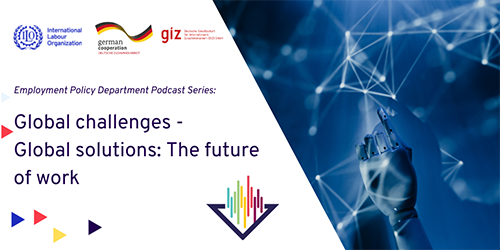
External Resources
Links
2021 The role of digital labour platforms in transforming the world of work (ILO)
2021 At Your Service? The Promise of Services-Led Development (World Bank)
2021 Fairwork India Ratings: Labour Standards in the Platform Economy
2020 The Future of Jobs Report (World Economic Forum)
2019 World Development Report: Changing Nature of Work (World Bank)
2019 Global Commission on the Future of Work: Work for a brighter future (ILO)
Contact
If you want to learn more about the joint action on the Future of Work, please reach out to us at future-of-work@giz.de
Partners

